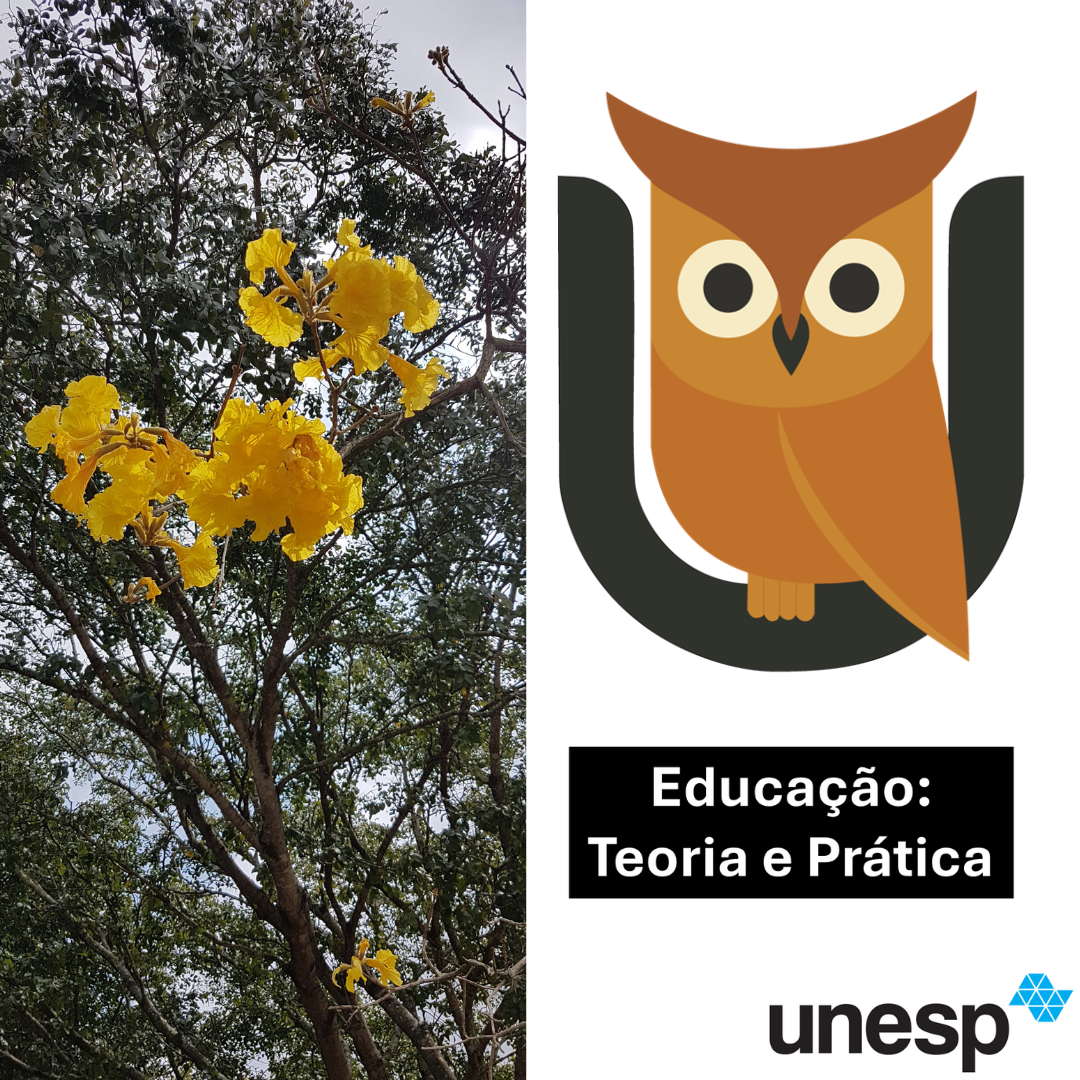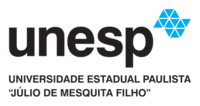Training tracks for teachers in on-line context: an international partnership for dialogue and practices
DOI:
https://doi.org/10.18675/1981-8106.v35.n.69.s18207Keywords:
Training tracks. Teacher training. Internationalization. Pedagogical practice.Abstract
This paper constitutes an excerpt from the research project “Robotics, Computational Thinking, and Digital Technologies in Basic Education: Enhancing Learning and Skills in Processes of Reframing Science Teaching”. Within the scope of this project, a partnership was established between Universidade Aberta de Portugal (UAb, Mission Unit of the Local Learning Centers of Coruche and Montijo) and Grupo de Pesquisa em Educação, Tecnologias e Cultura Digital (GRUPETeC) linked to the Conselho Nacional de Desenvolvimento Científico e Tecnológico (CNPq) and Universidade Nove de Julho, in São Paulo, Brazil. Based on this partnership, the event “Oficinas e Trilhas Formativas para Professores: Diálogos e Práticas” was organized in March 2023. This study aims to analyze the perception of event participants regarding their contributions to developing new knowledge and technological skills and their applicability. We used a qualitative methodology to match the data. The systematization and analysis of participants' perceptions was carried out using the Iramuteq software. The results showed that the training workshops contributed to the development of new knowledge and skills in the participants, who considered the possibility of developing activities in their classrooms based on digital technologies. They also highlighted challenges to be overcome to attract student attention to pedagogical practice, the need for reflection on an ongoing basis, and the lack of internet connection as obstacles yet to be overcome. These insights could offer essential elements for designing teacher training processes in online contexts, considering opportunities for dialogue across borders.
References
BACICH, L.; MORAN, J. Metodologias ativas para uma educação inovadora: uma abordagem teórico prática. São Paulo: Editora Grupo A - Penso, 2020.
BARDIN, L. Análise de conteúdo. Lisboa: Edições 70, 1977.
BARROS, D. M. V. Estilos Pedagógicos de Internacionalização no Digital. Universidade Aberta e Universidade de Coimbra (no prelo), 2023.
BRASIL. Resolução CNE/CP nº 1, de 27 de outubro de 2020. Dispõe sobre as Diretrizes Curriculares Nacionais para a Formação Continuada de Professores da Educação Básica e institui a Base Nacional Comum para a Formação Continuada de Professores da Educação Básica (BNC-Formação Continuada). Brasília, DF: Ministério da Educação/Conselho Nacional de Educação. 2020. Disponível em: https://acesse.one/KDiLQ. Acesso em: 11 mar. 2025.
CZESZAK, W. A. A. C. A Interação e a Colaboração na Formação de Mediadores Pedagógicos Digitais. EaD em Foco, v. 10, 2020. Disponível em: https://doi.org/10.18264/eadf.v10i1941. Acesso em: 11 mar. 2025.
GATTI, B. Formação de professores e carreira. Campinas: Editora Autores Associados, 1997.
LASAKOSWITSCK, R.; CUSTODIO, S. V. F.; ROSA, T. A. Trilhas formativas e formação continuada de professores: Oficinas para inserção das tecnologias digitais nas práticas pedagógicas. Dialogia, [S. l.], n. 40, p. e21722, 2022. DOI: 10.5585/40.2022.21722. Disponível em: https://periodicos.uninove.br/dialogia/article/view/21722. Acesso em: 11 mar. 2025.
LUCAS, M.; MOREIRA, A. DigCompEdu: quadro europeu de competência digital para educadores. Aveiro: UA, 2018.
MENEZES, E. T. Dicionário Interativo da Educação Brasileira-EducaBrasil. Midiamix Editora, 2001.
OLIVEIRA, J. L. Ensinar e aprender com as tecnologias digitais em rede: possibilidades, desafios e tensões. ReDoc - Revista Docência e Cibercultura, [S. l.], v. 2, n. 2, p. 161-184, 2018. DOI: 10.12957/redoc.2018.33476. Disponível em: https://www.e-publicacoes.uerj.br/re-doc/article/view/33476. Acesso em: 11 mar. 2025.
PIMENTA, S. G. Formação de professores – saberes da docência e identidade do professor. Rev. Fac. Educ., v. 22, n. 2, p. 72-89, 1996. DOI: https://doi.org/10.1590/S0102-25551996000200004. Disponível em: https://www.revistas.usp.br/rfe/article/view/33579. Acesso em: 11 mar. 2025.
REIS, V.; MENDES, G. M. L. De iniciantes a vanguardistas: o uso de tecnologias digitais por jovens professores. HOLOS, [S. l.], v. 1, p. 297-316, 2018. DOI: 10.15628/holos.2018.4867. Disponível em: https://www2.ifrn.edu.br/ojs/index.php/HOLOS/article/view/4867. Acesso em: 11 mar. 2025.
RODRIGUES, P. M. L.; LIMA, W. S. R.; VIANA, M. A. P. A importância da formação continuada de professores da educação básica: a arte de ensinar e o fazer cotidiano. Saberes Docentes em Ação, v. 3, n. 1, p. 28-47, 2017. Disponível em: https://acesse.one/W44K9. Acesso em: 11 mar. 2025.
SCHERER, S.; DA SILVA BRITO, G. Integração de tecnologias digitais ao currículo: diálogos sobre desafios e dificuldades1. Educar em Revista, [S. l.], v. 36, 2020. Disponível em: https://revistas.ufpr.br/educar/article/view/76252. Acesso em: 11 mar. 2025.
SENNA, C. M. P. et al. Metodologias ativas de aprendizagem: elaboração de roteiros de estudos em “salas sem paredes”. In: MORAN, J. M.; BACICH, L. (org.). Metodologias ativas para uma construção inovadora: uma abordagem teórico-prática. Porto Alegre: Penso, 2018. p. 220- 237.
SILVA, I. C. S.; PRATES, T. S.; RIBEIRO, L. F. S. As Novas Tecnologias e aprendizagem: Desafios enfrentados pelo professor na sala de aula. Revista Em Debate (UFSC), v. 16, p. 107-123, 2016. DOI: http://dx.doi.org/10.5007/1980-3532.2016n15p107. Disponível em: https://periodicos.ufsc.br/index.php/emdebate/article/view/1980-3532.2016n15p107/33788. Acesso em: 11 mar. 2025.
SOUZA, M. A. R.; WALL, M. L.; THULER, A. C. M. C.; LOWEN, I. M. V.; PERES, A. M. O uso do software IRAMUTEQ na análise de dados em pesquisas qualitativas. Rev Esc Enferm USP. 52:e03353, p. 1-7, 2018. Disponível em: https://www.scielo.br/j/reeusp/a/pPCgsCCgX7t7mZWfp6QfCcC/?format=pdf&lang=pt. Acesso em: 11 mar. 2025.
TOZETTO, S. S. Trabalho docente: Saberes e práticas. CRV, 2010.
TRINDADE, S. D.; MOREIRA, J. A.; FERREIRA, A. G. Evaluation of the teachers’ digital competences in primary and secondary education in Portugal with DigCompEdu CheckIn in pandemic times. Acta Scientiarum. Technology, 2021. Disponível em: https://doi.org/10.4025/actascitechnol.v43i1.56383.10.4025/actascitechnol.v43i1.56383. Acesso em: 11 mar. 2025.
TRINDADE, S. D.; MOREIRA, J. A.; NUNES, C. S. Escala de Auto avaliação de competências Digitais de Professores. Procedimentos de Construção e Validação. Rev. Texto Livre: linguagem e tecnologia, v. 12, n. 2, p. 152-171, 2019. DOI: 10.17851/1983-3652.12.2.152-171. Acesso em: 11 mar. 2025.
VALENTE, J. A.; ALMEIDA, M. E. B.; GERALDINI, A. F. S. Metodologias ativas: Das concepções às práticas em distintos níveis de ensino. Rev. Diálogo Educ, v. 17, n. 52, p. 455-478, 2017. Disponível em: https://www.redalyc.org/articulo.oa?id=189154955008. Acesso em: 11 mar. 2025.
Downloads
Published
How to Cite
Issue
Section
License
Authors who publish in this journal agree to the following terms:
a) Authors assign copyright to the journal, with the work simultaneously licensed under the Creative Commons Attribution License that allows sharing of the work with acknowledgment of authorship and publication in this journal.
b) The policy adopted by the Editorial Committee is to assign copyright only after a period of 30 months from the date of publication of the article. After this time, authors interested in publishing the same text in another work must send a letter to the Editorial Committee requesting the release of the assignment of copyright and wait for a response.
c) This journal provides public access to all its content, since this allows greater visibility and reach of published articles and reviews. For more information on this approach, visit the Public Knowledge Project, a project that developed this system to improve the academic and public quality of research, by distributing OJS as well as other software to support the public access publication system to academic sources. The names and email addresses on this website will be used exclusively for the purposes of the journal and will not be available for other purposes. This journal provides open any other party  This work is licensed under a Creative Commons License
This work is licensed under a Creative Commons License










